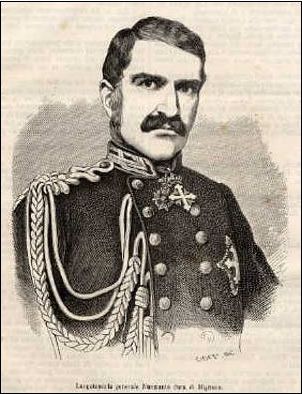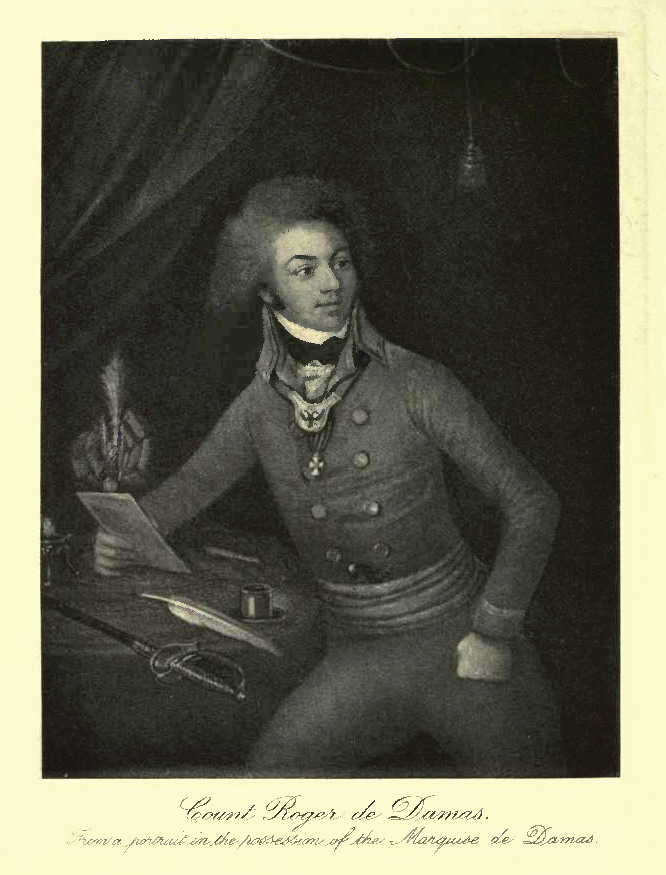|
Alessandro Nunziante
Alessandro Nunziante, Duke of Mignano (30 July 1815 – 6 March 1881), was an Italian general and politician of the Kingdom of the Two Sicilies, and, from 1861, the Kingdom of Italy. While an officer in the Bourbon Army, Nunziante was a reactionary. Although he was a friend of Ferdinand II and close collaborator with Francis II, he left the Bourbon court in 1860, resigning and returning his honors, and joined the Italian unification effort. Early life Alessandro Nunziante was born in Messina, the son of General Vito Nunziante and Camilla Barrese. In 1827, Nunziante entered the Nunziatella Military School. After completing his studies, he began his career in the 7th Regiment of the Bourbon Army. In 1839, Nunziante married Teresa Tuttavilla of the Dukes of Mignano, daughter of the Duke of Calabritto. They had 5 children: Francesco (died in infancy), Mariano, Maria Elena, Maria Camilla (died in infancy), and Pasquale (died in infancy). In 1845, Ferdinand II granted Nunzi ... [...More Info...] [...Related Items...] OR: [Wikipedia] [Google] [Baidu] |
Army Of The Two Sicilies
The Army of the Two Sicilies, also known as the Royal Army of His Majesty the King of the Kingdom of the Two Sicilies (''Reale Esercito di Sua Maestà il Re del Regno delle Due Sicilie''), the Bourbon Army (''Esercito Borbonico'') or the Neapolitan Army (''Esercito Napoletano''), was the land forces of the Kingdom of the Two Sicilies, whose armed forces also included Real Marina (Kingdom of the Two Sicilies), a navy. It was in existence from 1734 to 1861. It was the land armed force of the new independent state created by the settlement of the House of Bourbon-Two Sicilies, Bourbon dynasty in southern Italy following the events of the War of the Polish Succession. History Although the Royal Army arose only in 1734, the Kingdom of Naples, Neapolitan and Kingdom of Sicily, Sicilian military institutions boast a much older history, which lays its foundations in the organization of a "state" army (i.e. state and no longer feudal) by Ferdinand I of Naples in 1464. In particular, dur ... [...More Info...] [...Related Items...] OR: [Wikipedia] [Google] [Baidu] |

